13 Days
Tailor-made
1 - 6 people
English
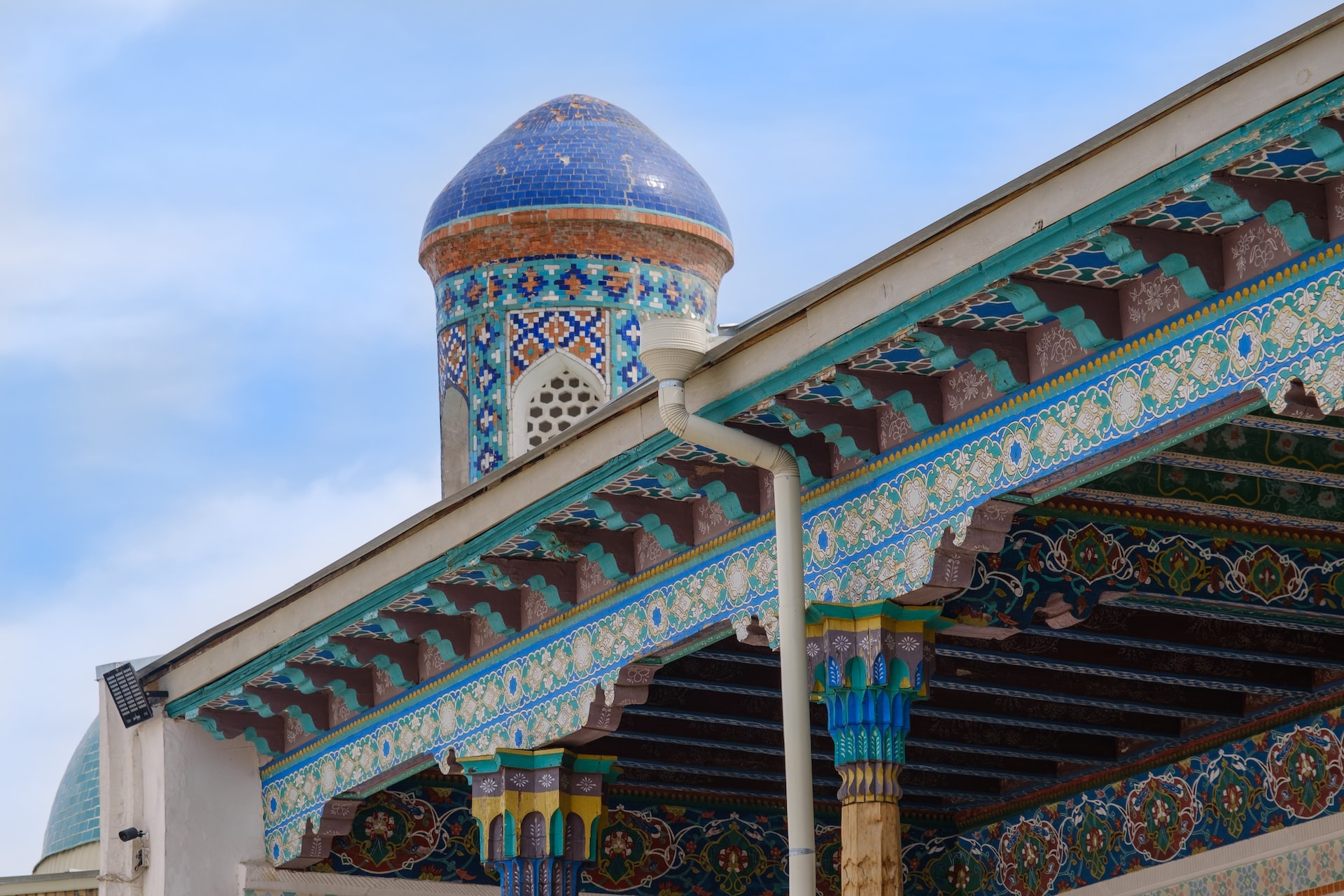
Arrive at Tashkent international airport. You will be met by your driver and he’ll transfers you to the hotel.
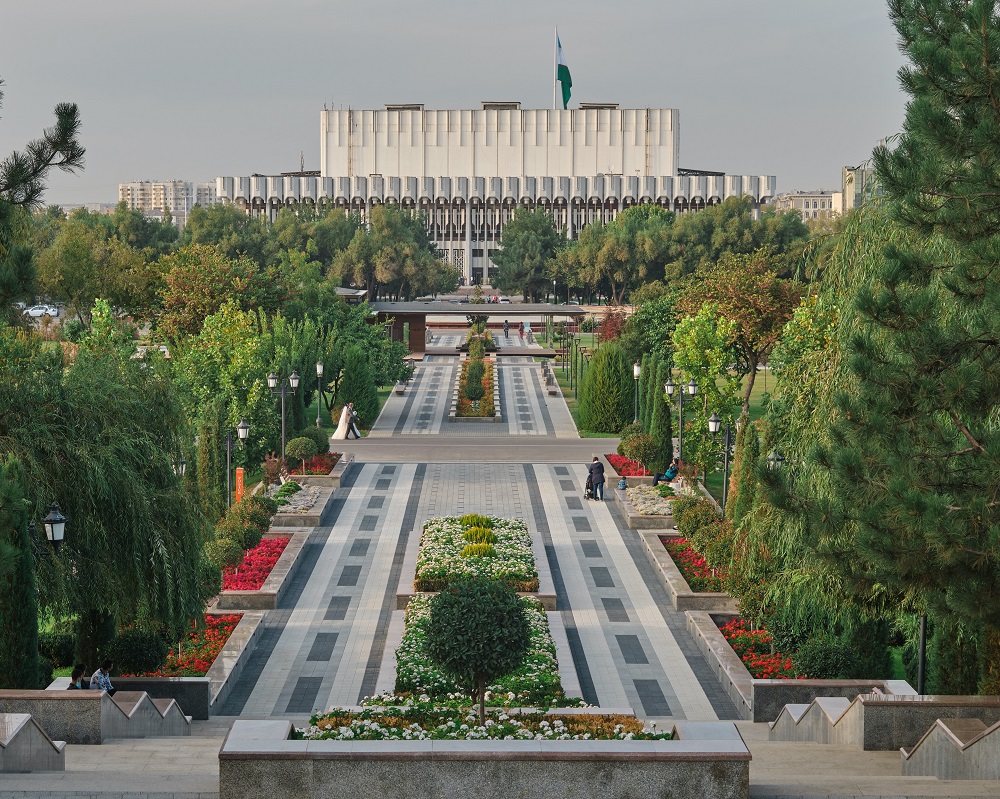
The morning starts with sightseeing in the capital of Uzbekistan, the biggest city in Central Asia. You'll visit the Old City part of Tashkent, Khast-Imom Complex (XVI-XXI century) where the world-famous Quran (VII century) of Caliph Uthman – Ottoman has been preserved. In Khast-Imom visit the Madrasah of Barak-Khan and the Islamic Institute of Imam al-Bukhari; Chor-Su Bazaar, the age of which is more than a hundred years; Tashkent Metro (1977) Ride – is the only currently operating metro in Central Asia; Independence Square – located in the center of Tashkent city. It is a favorite resting place for the Tashkent residents. The fact that the most beautiful fountains of the city are located in the square contributed considerably to it; Applied Arts Museum (1937) – its fund lists over 7,000 samples of applied arts: handmade embroidery, skull-caps, jewelry, carpets, and other examples of craftsmanship of the beginning of the 19th century to present day. Overnight at the hotel.
Accommodation: Shah Polan 3*
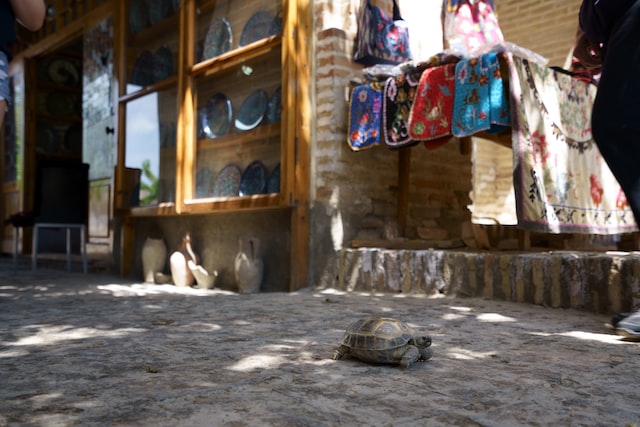
In the morning you will be transferred to Tashkent airport for a flight to Urgench. Upon arrival transfer to Khiva. Today you will visit Ichan-Kala Fortress – which is a UNESCO World Heritage site. Today Itchan-Kala (Ichan Kala) is an open-air museum. It is the old part of the city, surrounded by a wall and turned into the State Historical Archaeological Museum. Here on the vast territory of 26 hectares, the exotic image of the eastern city has been preserved. In Itchan-Kala there are about 60 historic buildings; Mukhammad Aminkhan Madrasah (1851-1854) – is the largest madrasah not only in Khiva but in Central Asia. The two-storied building occupies an area of 72 to 60 meters and has 125 khudjras (cells), intended for 260 students; Mukhammad Rahimkhan Madrasah (1876) – is a bright sample of the culture of the architecture of that epoch and takes a special niche in the history of Khoresm. Named after Muhammad Rahim-khan, who was one of the most educated representatives of the Kungrat dynasty ever to rule in Khiva since 1770; Kalta-Minor (1855) – has become the real symbol of the city. The Foundation of the minaret is 15 meters, the diameter at the foundation is 14,5 meters and the height is 29 meters. But this massive tower has only a third part of the project height. Its unique decoration strikes an imagination: the minaret is completely covered with glazed tile and majolica; Enjoy breathtaking panoramic views of Old Khiva in Kunya-Ark (1686).
Accommodation: Shokhjakhon Parvoz Hotel 3*
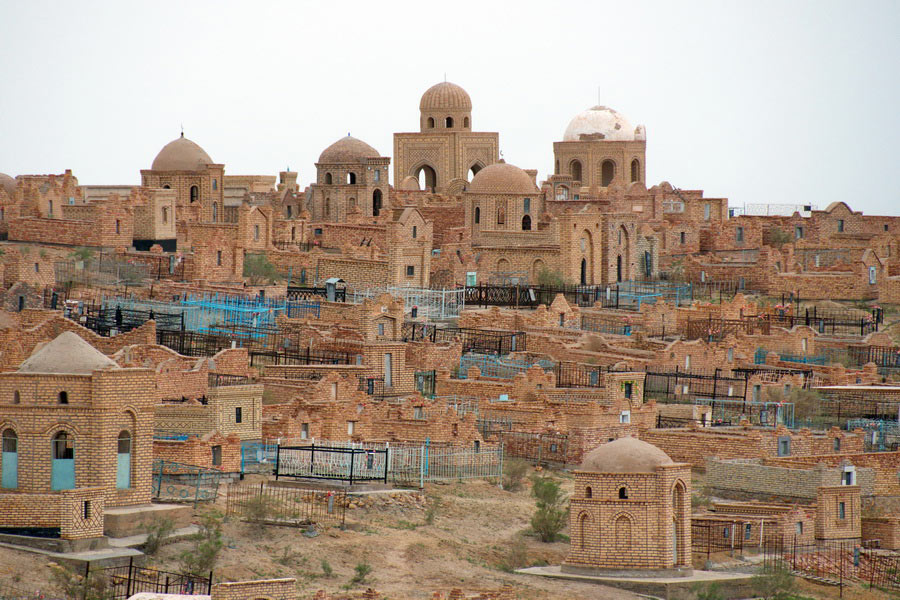
continue sightseeing in Ichan Kala Khiva.
Juma Mosque (XVIII century end) – is an original building without portals and cupolas, without galleries and yards. It is 55x46 m. The interior space is a single hall, the flat ceiling of which is supported by 215 wooden pillars; Tash-Khovli Palace (XIX century) – summer residence of Khiva khans. The original synthesis of architecture and monumental decorative art in the creative work of the Khorezm masters are vividly represented by this palace; Pakhlavan Makhmud Mausoleum (1701) – If blue domes as the symbol of the eastern architecture can be often found in Samarkand and Bukhara, there is only one blue dome in Khiva. It decorates the tomb of Makhmud Pahlavan, a famous poet and warrior of the XIV century. In the mausoleum of Pahlavan Mahmud people pray and drink the holy water; the Islam-Khoja minaret (XX century) – is the highest minaret in Uzbekistan. The height of the minaret is 56.6 meters, diameter of the fundament is 9.5 at the base. Master class on cooking tukhum Barak (unusual Khiva ravioli stuffed with raw eggs) at national house.
Accommodation: Shokhjakhon Parvoz Hotel 3*
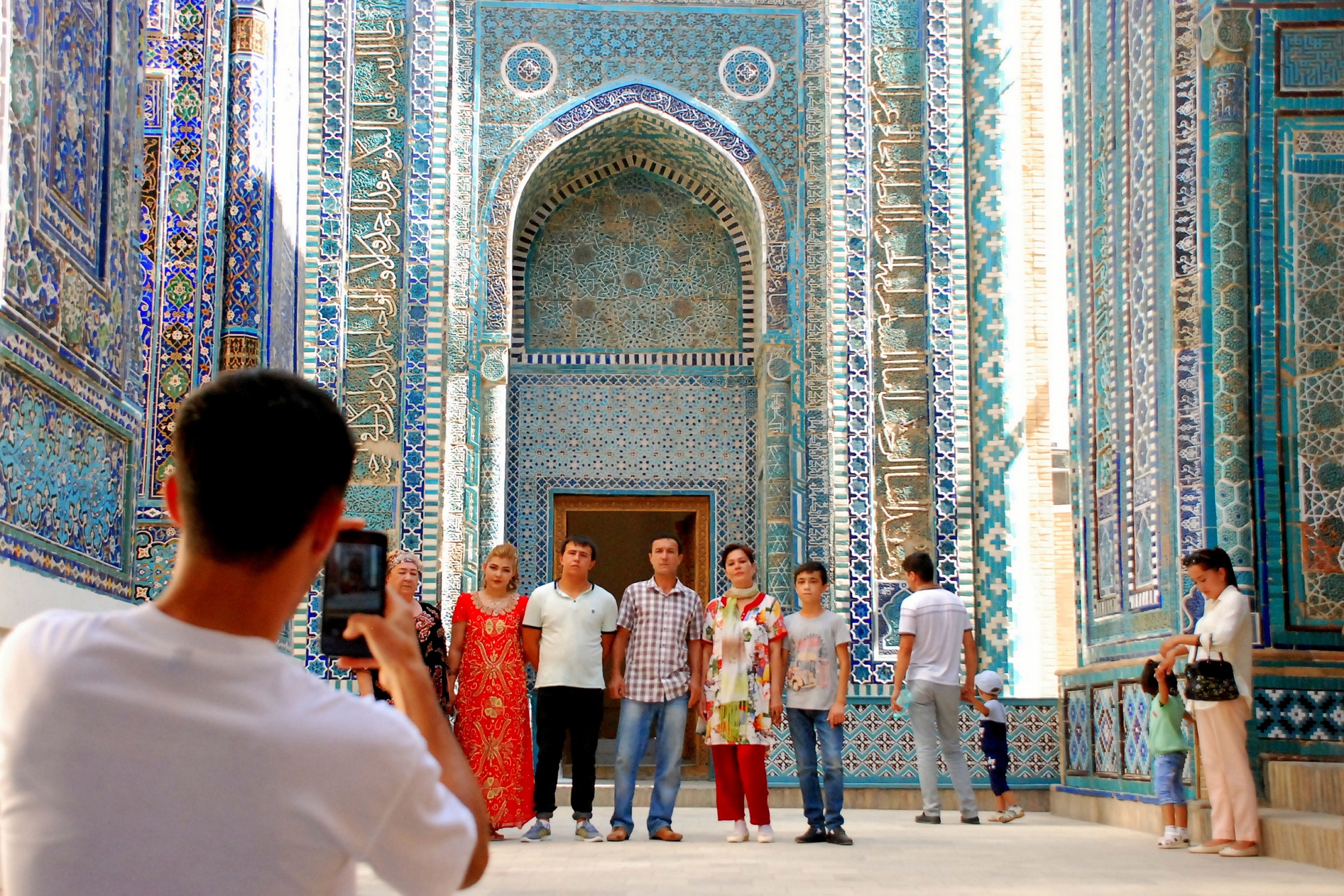
Breakfast at the hotel. In the morning depart Khiva and drive to Bukhara (480 km, 7-8 h.*).
The Great Silk Road once routed through Bukhara and Khiva ran through the Kyzyl Kum Desert, as the present road does nowadays. Stop en route to enjoy views of the desert and Amu Darya River. Arrive in Bukhara late in the afternoon, and check in to the hotel. Time for rest.
Accommodation: Ayub Hotel 3*
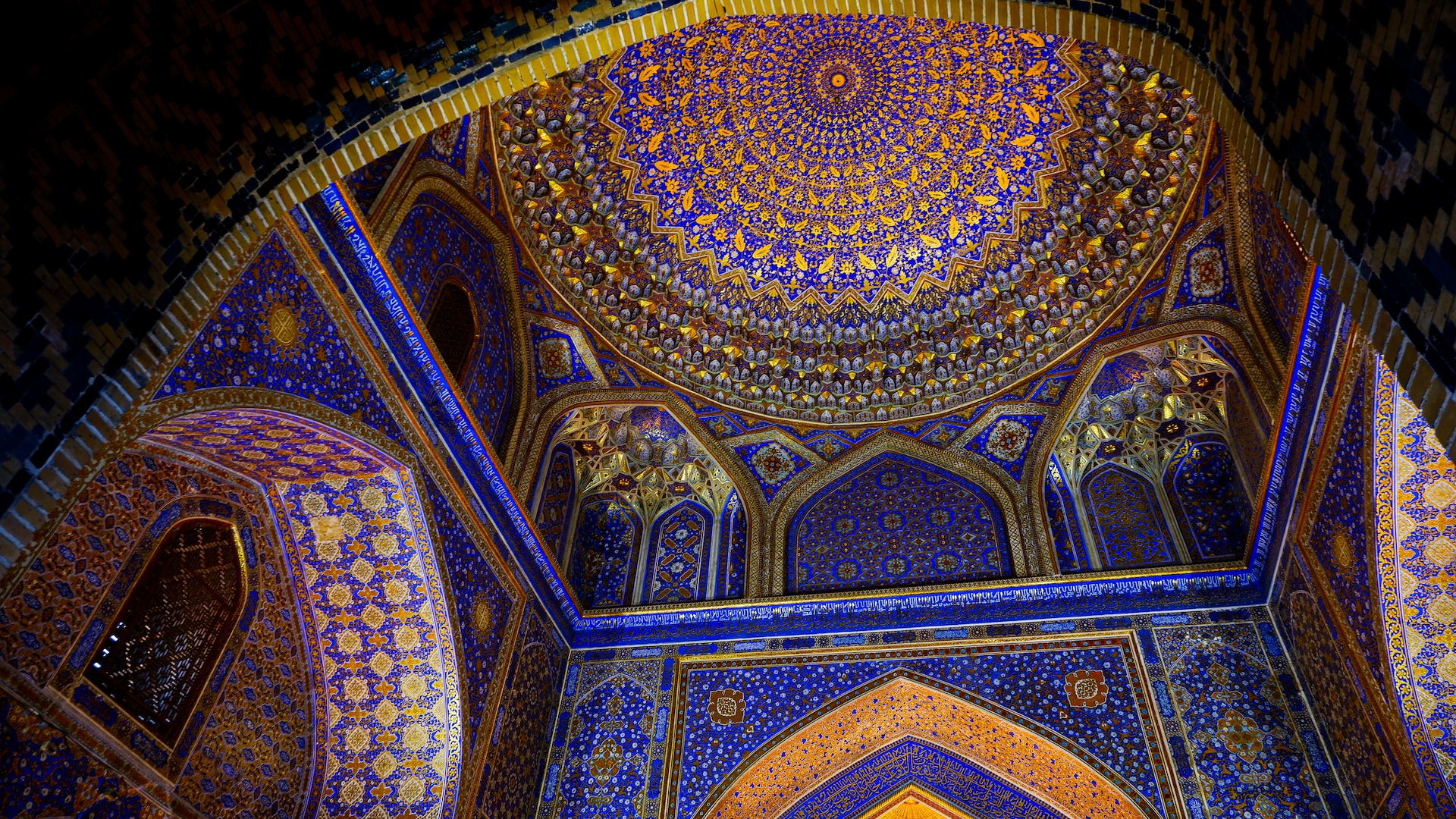
Spend your morning in fascinating Old Bukhara which is listed by UNESCO as a World Heritage Site. Explore: Ismail Samani mausoleum (IX century) – It was erected as a family crypt immediately after the death of Ismail Samani's father. Mausoleum is full of magnificence and the feeling of moving from this world to the world that lasts forever; Chashma-Ayub mausoleum (XII-XVI centuries) – “Saint Job’s Source”. A legend has it that the Bible prophet Job, having visited this land, decided to help the people who suffered from water shortage in the desert. He struck the ground with his stick, making a source of crystal clear water spring at that place. Bolo-Khauz Mosque (1712) – it is the only preserved monument on Registan Square. The complex consists of the reservoir, Friday mosque, and minaret. The most ancient part of the complex is the pond (Khauz), which is called as Bolo-Khauz ("Children's reservoir"); Legendary Ark Fortress (IV century BC) – The symbol of the state power. It was a residence of Bukhara khans; Kalyan Minaret (1127) – City symbol of Bukhara. The minaret was designated to summon Muslims to prayer five times a day. It still dominates the skyline of Bukhara, astonishing all who see it with its magnificent and flawless shape; Kalyan Mosque (XV century) – The layout of the Djuma Mosque (named the Kalyan Mosque) is traditional: a rectangular courtyard with a tall and large maksura room on the west side. Magoki-Attori Mosque (XII century) – Islamic mosque dating back to Zoroastrianism. It is an example of an urban mosque in a residential quarter; Ulugbek madrasah (1417) – the most ancient of three madrasahs, built by Ulugbek; Abdulazizkhan madrasahs (1651-1652) – luxurious decoration. The building is typical by composition, with four-ayvans yard, but with an unordinary divergent fan of Hudj groups after side ayvans and cupola buildings on the central axis; Trading domes – Toki-Sarrafon Trading Dome (was currency exchange center of Central Asia), Telpak Furushon Trading Dome (first was bookselling place, later selling caps), Timi Abdullakhan Trading Dome (carpets and fabrics were sold), Toki-Zargaron Trading Dome (were selling jewelry); Lyabi Hauz Ensemble (XVI-XVII centuries) – the historical source of water supply in Bukhara. It is formed with three large monumental buildings: Kukeldash Madrasah (1568-1569) in the north, khanaka (1619-1620) and Nodir Divan-begi in the west and in the east; Chor-Minor Madrasah (1807) – “Four Minarets” - The towers’ décor elements are believed to reflect the religious-philosophical understanding of the world’s four religions.
Accommodation: Ayub Hotel 3*
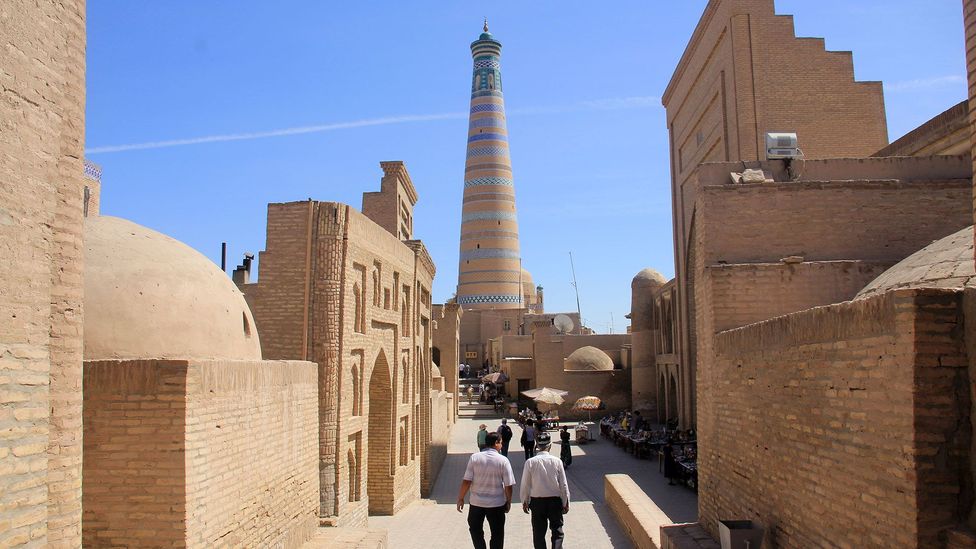
Drive out of the city outskirts visiting: Start the day in Bukhara discovering: Sitorai Mokhi-Khosa (XIX century mid) – the summer residence of Bukhara’s last emir. The Bukhara architects having trained in Russia managed to combine oriental and western styles in their creation; Today you will cook “Non”, Uzbek national bread, and “Somsa”, stuffed puff pastry, at the national house.
In the afternoon depart Bukhara and drive to Samarkand (280 km, 4 h.*). Stop on the way at Caravanserai Rabat Malik (XI century) – the summer residence of Karakhanids. There are no analogous monuments that can give us an example of the everyday life of the Karakhanid rulers in the territory of Central Asia. Continue driving to Samarkand. Arrive in Samarkand, and check in to the hotel. Accommodation at the hotel and free time at leisure. Overnight at the hotel.
Accommodation: Ideal Hotel 3*

We begin the city tour in Samarkand: Gur Emir Mausoleum (XV century) – an authentic shrine of Tamerlane. This majestic complex consisted of a khanaka, the madrasah of Muhammad Sultan - grandson of Amir Timur, and, later, tombs of Amir Timur himself and his descendants. Gur Emir was a prototype for famous samples of architecture of the Great Mughal: Humayun Mausoleum in Delhi and the Taj Mahal in Agra, built by Timur descendants, who ruled northern India. Registan Square (XV-XVII centuries) – during centuries it was the center of Samarkand. The word Registan means “sand place”. The ensemble consists of three Madrassahs: Ulugbek Madrassah (15th century), Sher – Dor Madrassah (17th century), and Tilla-Kari Madrassah (gold covered) (17th century); Bibi Khanum Mosque (1399-1404) – The majestic blue domes of the Bibi-Khanum Mosque is the unusual sight. It takes one’s breath even from understanding the scale of construction of this monument, impressing by its size and beauty. In antiquity the dome of this mosque was compared with the dome of heaven and the arch of the portal – with the Milky Way; Siyob Bazaar (on Mondays it’s closed) – is the largest trading center of Samarkand. Mostly here you can find national bread, fruits, vegetables, sweets, and a lot more; Next, the driver will take you to Siyob bazaar, the eastern market, where you will meet the chef, who will lead a master class in cooking Samarkand pilaf. Siab bazaar is the largest and oldest marketplace in Samarkand. Its stalls offer to try and haggle for vegetables, fruits, nuts, oriental sweets, spices, and cereals. The market houses rows of street food cafes that offer national dishes, most of them cooked on firewood. You will find there shashlyk (barbeque, usually from minced and diced beef), pilaf (Uzbek signature dish similar to Indian briani), lagman (hot noodle soup with beef and vegetables topping), shurpa (soup with rather big pieces of red meat and vegetables), samsa (stuffed puff pastry), Khanum (steamed rolled dough with some shredded potato).
Accommodation: Ideal Hotel 3*
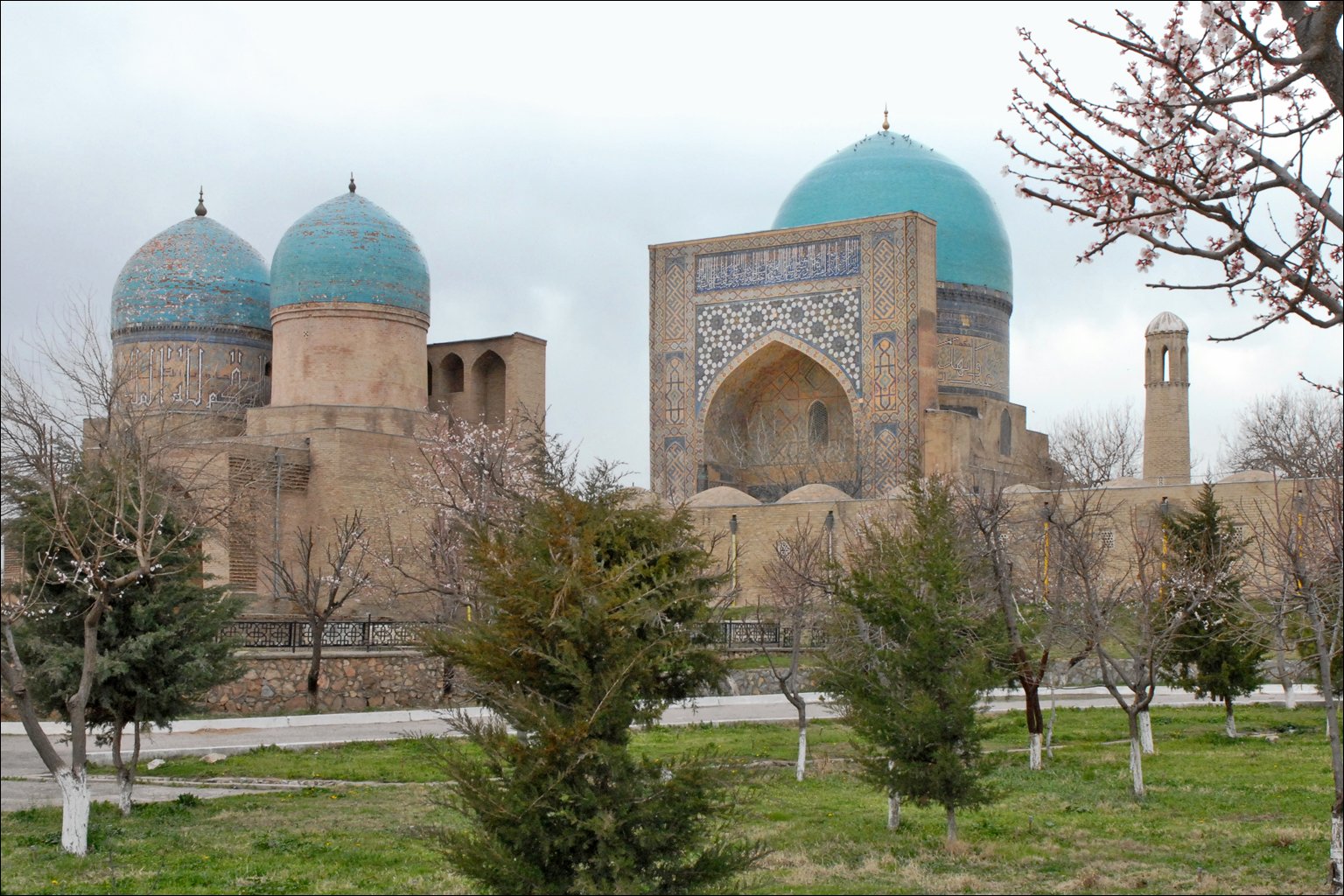
Morning transfer to Shakhrisabz. Have a short city tour in Shakhrisabz. Visit the Mausoleum of Jakhongir in Dor-us Saodat Memorial Complex, the remains of Ak-Saray Palace, Dorut-Tilavat Ensemble with Kok-Gumbaz Mosque, and the burial vault of Amir Temur’s father. In the afternoon return to Samarkand. On the road visit a wool carpenter man's house in Chirokchi District. Arrive back to Samarkand and have free time at leisure.
Accommodation: Ideal Hotel 3*
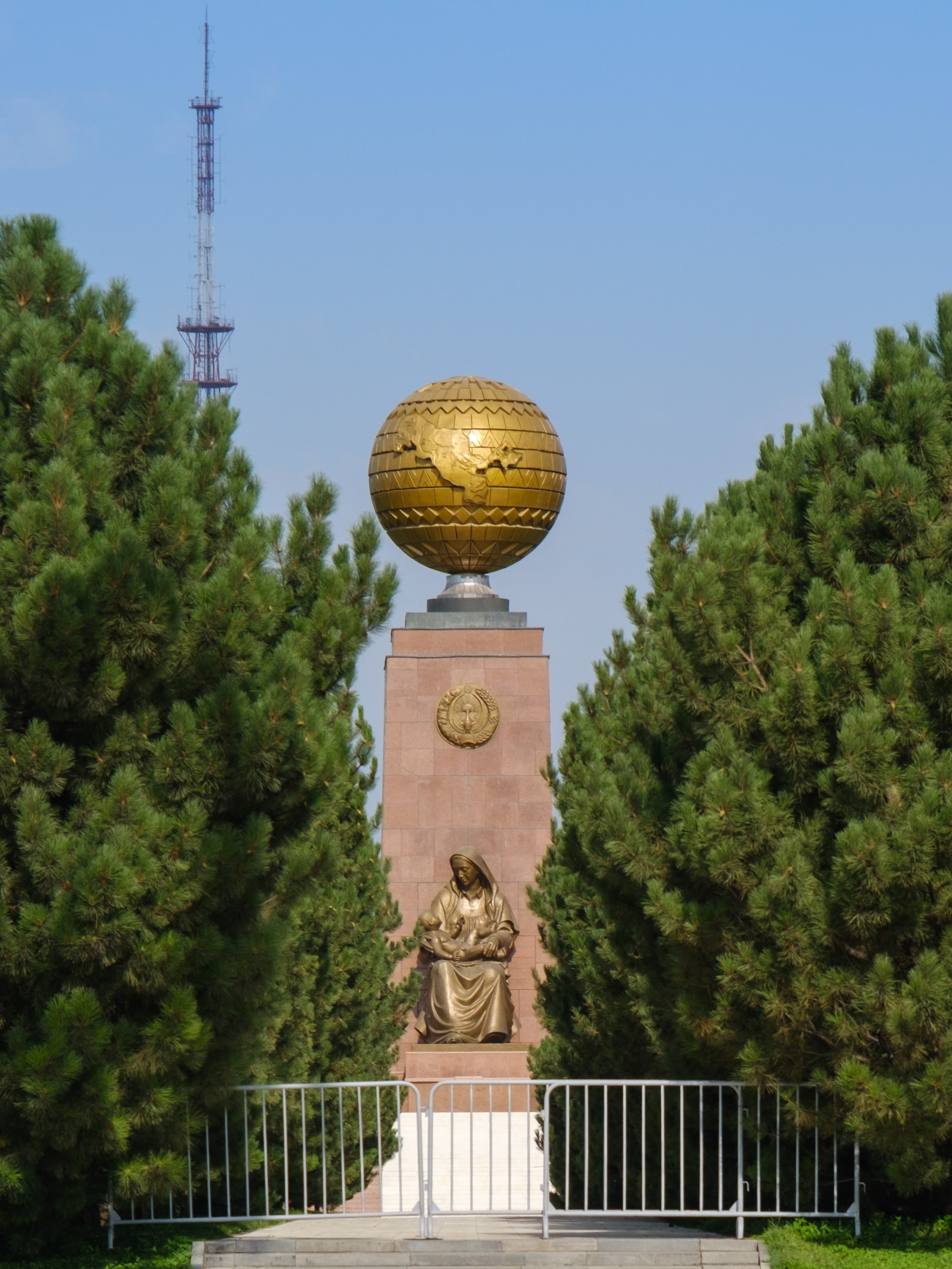
Continue sightseeing visiting Samarkand: Shakhi-Zinda Necropolis (XIV-XV centuries) – consists of rows of refined sparkling blue colors tombs. Shakhi Zinda consists of eleven mausoleums, which were built one after another in the XIV-XV centuries. Shakhi Zinda is the burial place of royal persons and nobles. But the main mausoleum from which the necropolis starts seems to be the imaginary grave of Prophet Muhammad's cousin, Kusama Ibn Abbas.
The complex was called "Shakhi Zinda" which means in Persian "The Living King". Ulugbek Observatory (1428-1429) – The astronomical miracle of medieval Uzbekistan. The observatory was unique construction for its time. The basis of the observatory was a giant goniometric vertical circle), the radius of the circle was equal to 40,212 meters, and the length of the arc was 63 meters; Mausoleum of Saint Daniel (1900, but the grave was long earlier) – There is hardly any place in the world is a where Muslim, Christian, and Jewish come to pray. But this Tomb of the Old Testament Prophet Daniel, also known as Daniel, or Doniyar. Then drive to Konigil village to explore the traditional way of making Samarkand paper from the mulberry tree.
At 17:00 transfer to the railway station. Fast-speed Afrosiyob train departs Samarkand at 18:00 and arrives in Tashkent at 20:10 p.m. Transfer to the hotel and
Accommodation: Shah Polan Hotel 3*
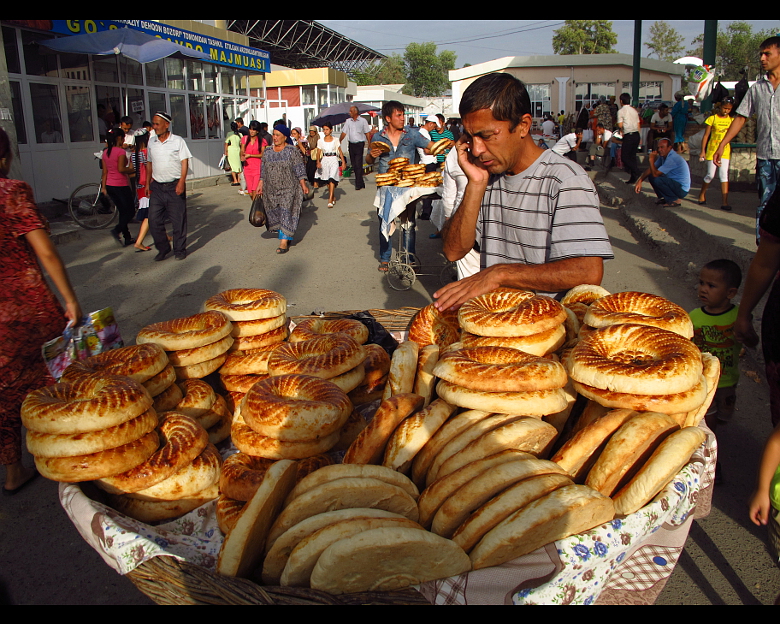
At 07:00 transfer to the Tashkent train station. Take the train departing to Kokand at 08:05 (Alternative transport is available, see below). Arrive in Kokand at 12:16. Meet your driver and start the sightseeing tour in Fergana Valley. Visit the Khudoyorkhan Palace, Jami Mosque, and Norbutabiy Madrassah. Continue to Rishtan to the house of a well-known ceramic master, Rustam Usmanov, whose works are exhibited at world exhibitions. At pottery master’s you will visit the workshop, see the process of pottery creation and see the collection of local ceramics. Afterward, we will continue to Fergana city. Arrive in Fergana and rest.
Accommodation: Grand Fergana Hotel 4*
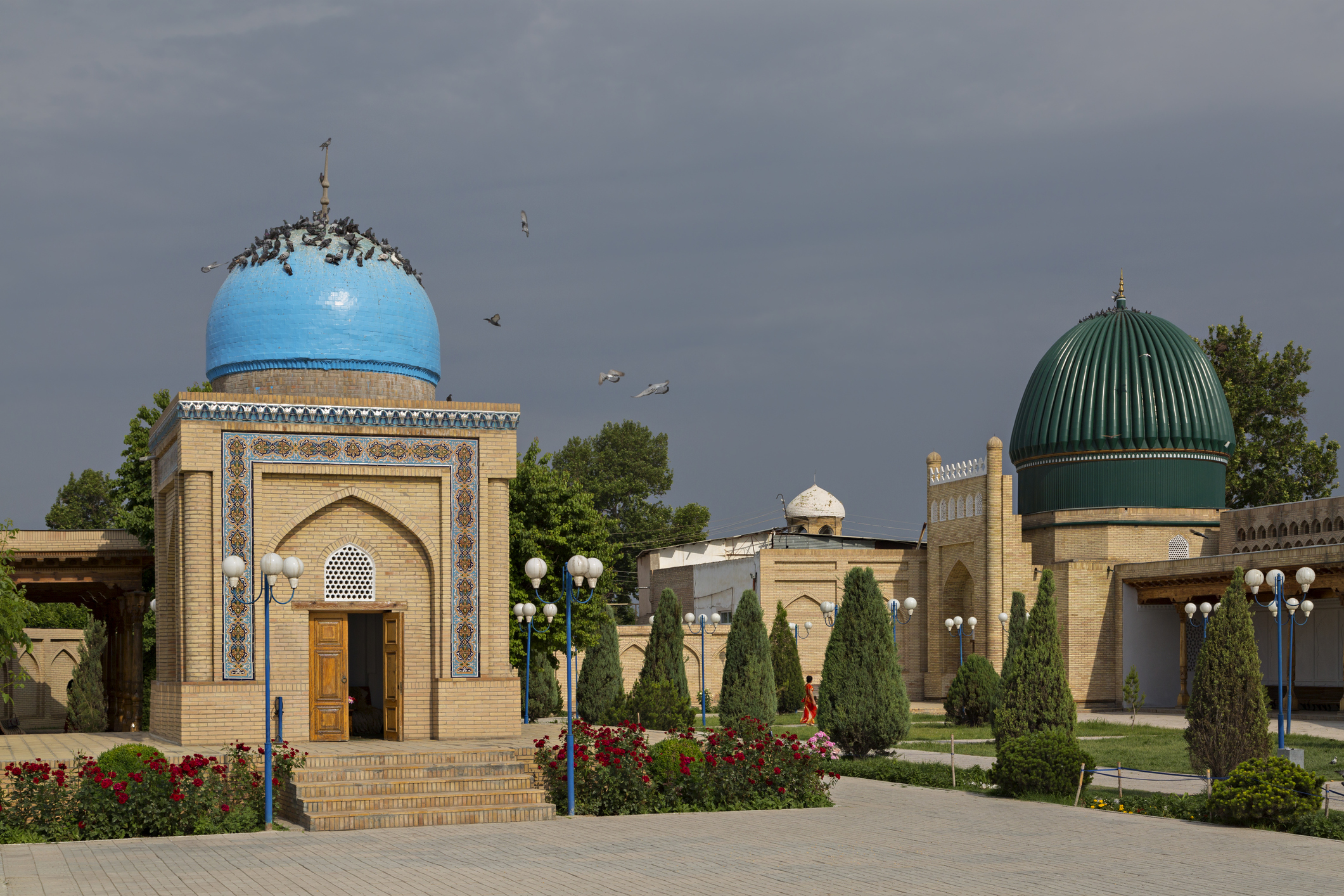
In the morning visit Akhmad Al Fergani Park. If it is Thursday or Sunday, visit Kumtepa Bazaar, the largest market in Fergana Valley. Continue to Margilan and visit Said Akhmad-Khoja Madrasah. Today, the madrasah is home to a number of craftsmen producing handmade carpets and silk. Have a walk on the traditional market and continue to the Yodgorlik Silk factory to see the production process of silk with traditional Ikat patterns (closed on Sundays). Drive back to Tashkent (320 km, 5 hours). Arrive in Tashkent, and check in to Tashkent.
Accommodation: Shah Polan Hotel 3*
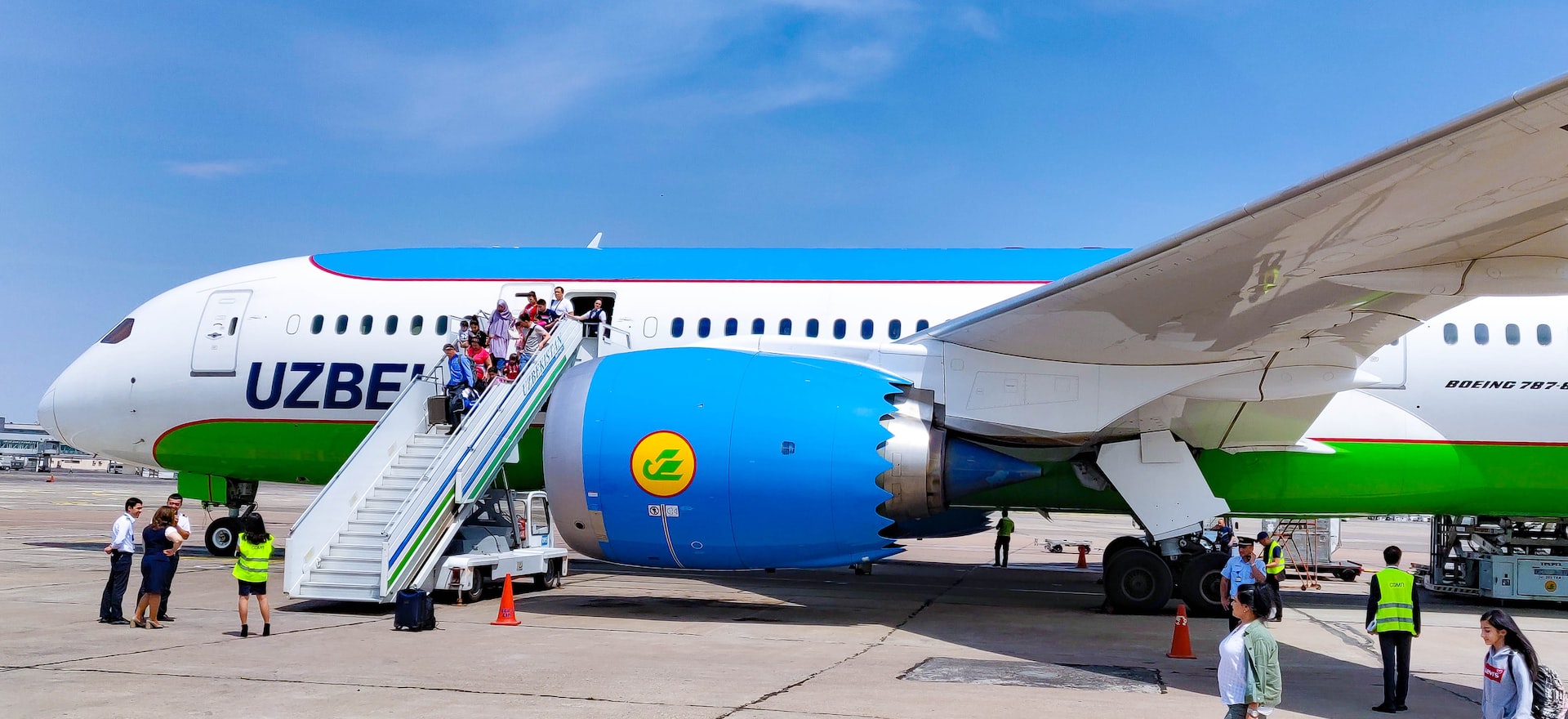
Today is the last day of the tour. you'll be transferred to the airport based on your departure flight time.
To enter Uzbekistan, visitors should have a visa (except for the 16 countries with a visa-free regime). To receive the visa, you should apply for visa support (letter of invitation) from a tour agency with a license from Uzbektourism. There are 51 countries with a simplified visa application procedure, meaning they do not need visa support to apply for a visa.
It is possible to obtain a visa at the international arrivals lounge of Tashkent International Airport if both of the following conditions are met: There is no Uzbekistan Embassy or Consulate in the country where you are originating your flight to Uzbekistan. Connecting flights to Uzbekistan, where Uzbekistan Embassy or Consulate exists, does not provide enough time to obtain a visa.
Spring (April to June) and autumn (September to October) are generally the most pleasant time to travel. The weather at this time is clear; in April, you will enjoy a colorful yet short spring in the desert. Autumn is harvest time, and the markets are full of fresh fruit. June and August are the best times for those who enjoy hiking because of the dry summer. In winter, the temperature usually varies between -5 and +5 (all temperatures are in Celsius), snow is usual for Uzbekistan, but there are sunnier than cloudy days. Coats, hats, gloves, and sweaters are recommended. In spring, the weather is mild; day temperature fluctuates between +15 and +25, reaching +30 - +35 close to summer. Casual, lightweight clothing for daytime and a light jacket or cardigan for the evening is suggested. If you plan to visit Uzbekistan in the summer, expect +36 - + 42. T-shirts and shorts will work best. It is highly recommended to wear a hat or a cap or to use a parasol. Early autumn is like spring; T-shirts for daytime and a light jacket might be needed occasionally for evening time. Mid-October and November are relatively calm; you will need light jackets during the day and a raincoat sometimes. Weather temperature decreases from 35 to 15 degrees from early to late autumn.
Generally, there are no strict limitations on clothing, especially in Tashkent and other major cities, where particularly young people enjoy full liberty with clothing. You can frequently encounter young ladies wearing traditional Islamic covers, but this is a personal preference rather than a must. In some provinces, however, such as Ferghana Valley, it would be better to avoid wearing shorts. The same rule is applied when visiting religious places, mosques, mausoleums, etc. Also, ladies should cover their shoulders and chest and preferably wear a hat or a headscarf. In the summertime, it would be advisable to follow the above recommendation to protect yourself from the sun. Also, sun protection lotions can be used.
Below we give distances between the main tourist cities. Tashkent-Samarkand: 315 km, Tashkent-Shakhrisabz: 390 km, Tashkent-Fergana: 315 km, Tashkent-Bukhara: 575 km, Tashkent-Khiva: 1015 km, Samarkand-Shakhrisabz: 90km, Samarkand-Bukhara: 265km, Samarkand-Fergana: 560km, Samarkand-Khiva: 710km, Bukhara-Khiva: 445km, Bukhara-Fergana: 825km
| # | Discount group | From adult | To adult | Value |
|---|---|---|---|---|
| 1 | 1 Pax | 1 | 1 | 0 |
| 2 | 2 Pax | 2 | 2 | 38.32061069% |
| 3 | 3 Pax | 3 | 3 | 44.27480916% |
| 4 | 4 Pax | 4 | 4 | 44.27480916% |
| 5 | 5 Pax | 5 | 5 | 47.48091603% |
| 6 | 6 Pax | 6 | 6 | 47.5826972% |
Ketie